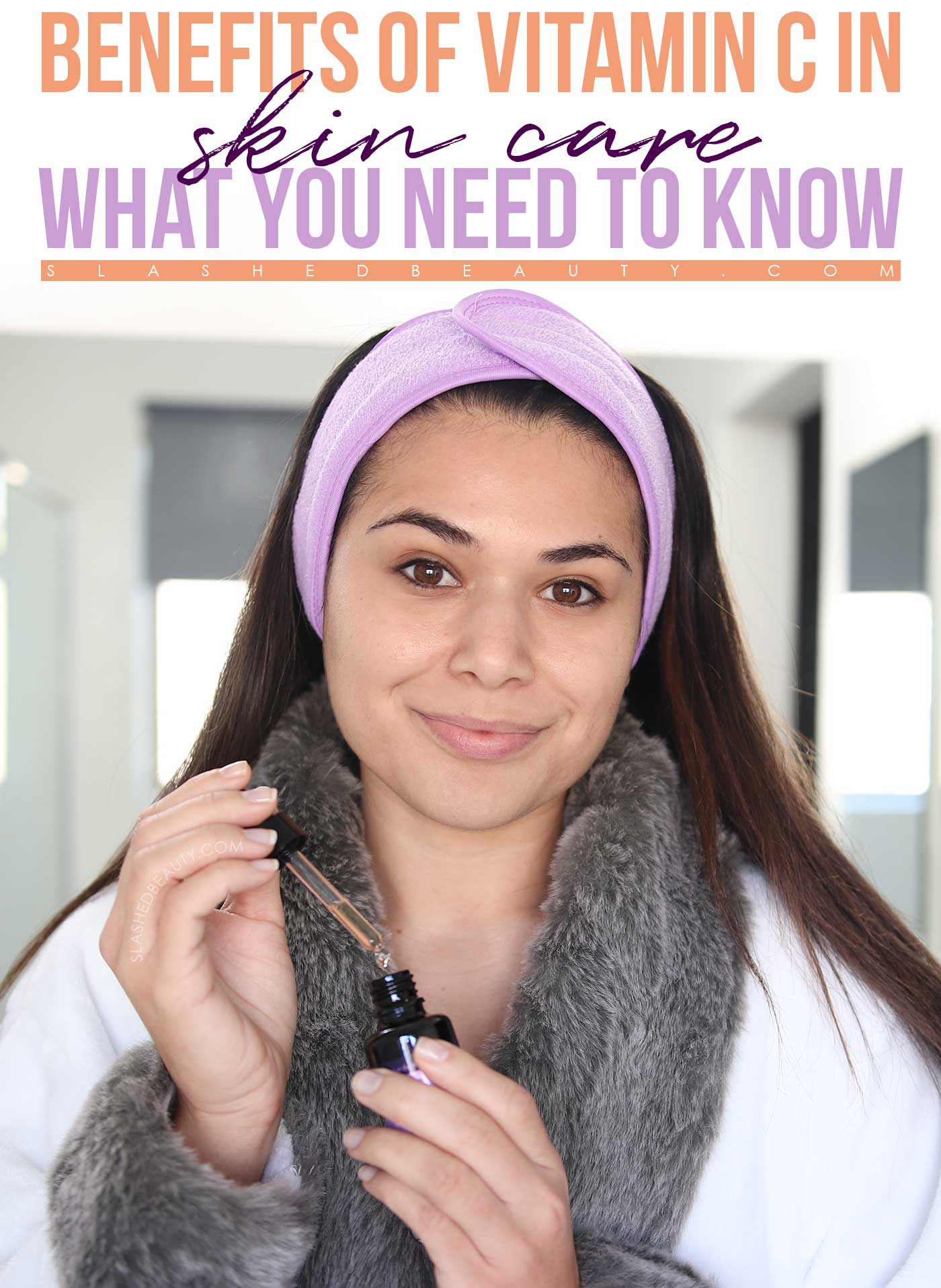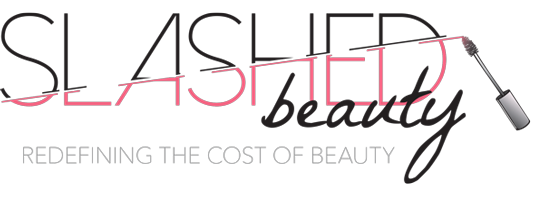Benefits of Vitamin C for Skin: What You Need to Know
Over the past several months, I’ve really started to feel more comfortable in my skin as it clears up and becomes much more even. When I do get acne, it clears up quickly and my hyperpigmentation is the faintest it’s ever been. I didn’t even have to spend a lot of money or time for these results to come fast… just one product— or type of product, rather— is to thank.
Vitamin C has made such a huge difference for my combination acne-prone skin, and it’s so easy to incorporate into your routine! Keep reading to discover the benefits of Vitamin C for skin, and the products that I’ve been using to get clearer, brighter and beautiful-when-bare skin.

What Vitamin C Does for Skin
Vitamin C is a powerful antioxidant and works to brighten skin, fading and preventing hyperpigmentation as well as neutralizing free radicals for anti-aging benefits. “Vitamin C promotes collagen production which is essential for generating healthy new skin and improves skin texture, evens the tone of the skin and reduces skin discoloration,” explains Ivy league-trained, Double Board Certified Facial Plastic Surgeon Dr. Jacob Steiger. “It also improves hydration and moisture to create brighter, healthier skin.”
To go more in-depth, check out this video from Doctor Anne, a Germany-based medical doctor who shares the science behind skin care on her YouTube channel. Doctor Anne points out that Vitamin C also “has many benefits that might support fighting acne […] being anti-inflammatory and in helping with postinflammatory hyperpigmentation. It will both inhibit the production of melanin by inhibiting the enzyme Tyrosinkinase, so less dark spots appear in the first place, and lighten the appearance of already existing brown spots.”
How to Use Vitamin C in Your Skin Care Routine
According to Dr. Steiger, Vitamin C is ideal for all skin types and should be applied 2 times a day for the best results. My favorite way– and what I’ve found to be most effective– is to use serums, which are concentrated for maximum effect. You should apply your serum before moisturizer, and after toning and exfoliating. This ensures proper absorption into the skin.
Downside of Vitamin C
So, what’s the catch? Well, Vitamin C is unstable… meaning that it loses its power over time. “Vitamin C is an antioxidant, and a very reactive one. If it comes in contact with a free radical, it oxidizes and neutralizes the free radical in the process. Free radicals are present in our skin, but this reaction can also occur through exposure to air or UV light in the bottle, which ‘uses up’ the Vitamin C before it even is applied to our skin,” explains Doctor Anne. “Oxidized Vitamin C is not harmful applied to the skin, just useless.” Exposure to heat, light and air speeds up the degradation of the ingredient. You’ll know if your serum is ineffective once it’s darkened, usually turning yellow or orange.
It’s important to purchase a serum packaged to maintain its properties as well as store it properly so you get the most out of it. While some of my favorite serums come in dropper-style bottles, those actually oxidize the serum the quickest. Look for pump or squeeze style packaging that is dark or opaque. Smaller bottles are better when it comes to Vitamin C, as you’re more likely to use all of the product before it oxidizes. After using, make sure you close the lid tightly and keep in a dry, cool place. A skin care fridge is a perfect place for your Vitamin C serum! Otherwise, keep it outside of the bathroom (like on your nighstand) as the temperature and humidity from showers can make it break down quickly.
My Favorite Vitamin C Serums
The Derma E Concentrated Vitamin C Serum ($19.99) is the serum I have finished multiple bottles of, and usually come back to time and time again. It’s made with 100% stable Vitamin C and has convenient pump packaging, keeping the serum from oxidizing or degrading before it hits your skin. It’s lightweight and great for layering with other products, and also contains Vitamin E, Hyaluronic Acid, and Aloe Vera for an extra boost of hydration.
Next, I’d recommend the Advanced Clinicals Vitamin C Serum ($12.95), which gives you the most bang for your buck. I like that the consistency is not too runny, but sinks into the skin quickly, making it easy to layer with other products or makeup. It also contains Ferulic Acid in the formula to help stabilize the Vitamin C plus glow and protection against sun damage. This specific serum definitely helped my hyperpigmentation fade quickly while promoting a smooth complexion that looked great under makeup.
Finally, another serum I’ve used and love is the Vichy LiftActiv Vitamin C Brightening Skin Corrector ($28.50). It contains 15% pure Vitamin C plus hyaluronic acid, and is a fragrance-free formula that’s great for sensitive skin like mine. This is the thinnest and most liquid formula, absorbing really quickly and completely into the skin. The bottle is small enough so that you can get through the entire thing before it oxidizes too much, despite the dropper bottle, though it is small in size.
Do you use Vitamin C in your skin care routine?




Hi, can you please tell me what lipstick you are wearing in the front page picture of this article?
I’m not wearing makeup in that photo, unless you mean a different one?
I am 58 years old with dry, sensitive skin and adult acne. Nice, huh Ive wondered about serums and vitamin c but I have to be so careful with what I put on my face! I dont feel like I have a lot of options and it’s very frustrating. Any advice would be very appreciated
When you say you have to be careful– do you mean you have sensitive skin, or allergies? Vitamin C is typically great for all skin types but if you have sensitive skin I’d look for a fragrance-free option. The Vichy serum I link in this post would be good!
Not yet. I will use it soon. Do a post on retinol for the face please.